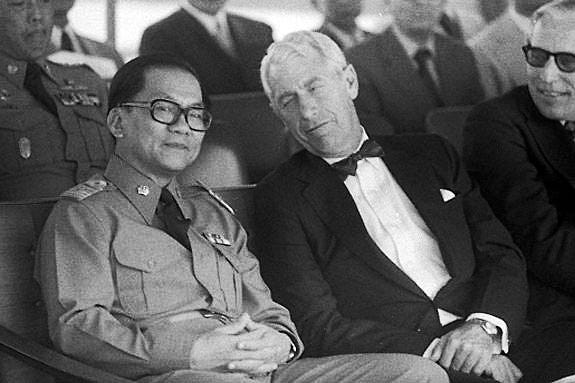The Anti-Communist Prime Minister
Thanin Kraivichien 1927-2025

I wasn’t originally planning to write a piece this week as I’m getting ready to defend my dissertation prospectus in a few days, but I did want to offer some reflections on the passing of the 14th prime minister of Thailand, Thanin Kraivichien, today at age 97.
Thanin’s passing reminds us of a radically different Thailand in the middle of the Cold War. He had started his career as a judge, but became well known for his strong anti-communist views. His premiership was brief and troubled, his appointment in 1976 resulting from a military coup that removed Democrat prime minister Seni Pramoj from office in the wake of the October 6th massacre at Thammasat University. The appointment was one that reflected the times: a strident anti-communist leading the nation at a time when the communist threat loomed large, the Kingdom of Laos having been swept by the communist Pathet Lao only a year previously. And it was in that spirit that he governed, cracking down on student activists and other civil society organizations that were suspected of communist sympathies. Thanin, at that time, intended for democracy to be suspended for 12 years.
Thanin himself compared his government to shellfish. His administration was the soft meat inside, protected by the hard shell of military power. But the shellfish government found itself devoured by its protective outer shell. Thanin’s hardline government became increasingly unpopular — his anti-communism fervor had the unintended effect of driving more support to the communist insurgency, and he perhaps asserted too much independence from the military. Frank Darling wrote in 1978: “Thanin’s rigorous suppression of governmental corruption and the narcotics trade was threatening profitable graft and drug-smuggling operations protected by some of the military leaders.” And as the New York Times described succinctly: “he evidently had been…too single‐mindedly anti‐Communist in his foreign policy even for his military patrons. His zeal for investigating corruption in high places—including the military—may have contributed much to his downfall.”
Another coup was launched and General Kriangsak Chamanan succeeded Thanin, paving the way eventually for a long period of stability under General Prem Tinsulanonda. Prem would eventually conduct a reverse course, promulgating Order 66/2523 which softened the Thai government’s hardline stance towards the communists. But Thanin remained active in public life. He was appointed as a member of the Privy Council following his exit from the premiership, and in 2016 briefly became Acting President of the Privy Council following the passing of HM King Bhumibol Adulyadej and then-President General Prem Tinsulanonda’s assumption of the regency.
Thanin’s premiership had also been noteworthy in other respects. His cabinet was the first to include women (he appointed two female ministers). He is also the only prime minister whose spouse was not Thai; he married Karen Kraivichien (née Andersen), who was Danish, after meeting her in the United Kingdom. Some of the policies he championed remain in vogue: in 2016 he sent a letter to then-prime minister Prayut Chan-o-cha urging the prioritizing of the land bridge canal in Southern Thailand, which the current Pheu Thai administration continues to discuss. And thus his legacy, as a whole, is complicated. He was an anti-communist who ended up accidentally fueling the communist movement, a prime minister who needed the military but could not be tolerated by the military, but also a lifelong public servant who detested corruption and served for decades following his premiership.
At his death, Thanin was the oldest living former prime minister and the earliest to have served. Thanin’s passing reduces the membership of the former PM’s club to 11, with Anand Panyarachun now the earliest to have served. One of the last of his generation of prominent politicians in the 1970s — his predecessor and successor died in 1997 and 2003 respectively — his passing closes a chapter in Thai politics.


Thank you for such a succinct summary of the man and his times. You write thoughtfully and so very well. I'm sure you will breeze through your dissertation defense. Good luck!
Thanks, Ken. Great summarization. Good luck with your dissertation !